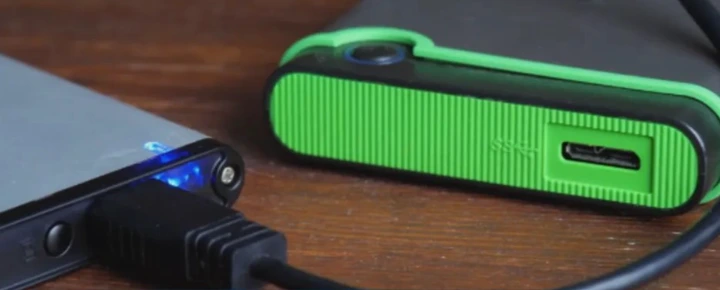Typically, a hard drive serves as the main storage of a computer. The importance of this is to ensure that every single piece of data entered is stored appropriately. There used to be a time when hard drives are primarily used as a computer’s internal storage or memory. However, due to technological evolution, they can be used as external storage and are also more transferable from one computer to another.
Smaller devices such as cell phones, laptops, and tablets, also have hard drives but of low capacity. People normally refer to these hard drives as just ‘Storage’. You will realize that Present-day hard drives can store huge measures of memory while running more smoothly than before.
One of the common disadvantages of hard drives is loss of data, however, it’s very important to protect your files before it’s too late. There are some files that are very difficult to recover without the right tools such as pictures, financial information, passwords, and other sensitive data. These are not entirely safe from viruses and other threats. That explains why it’s necessary to have a backup in case your hard drive fails. To protect your hard drive or storage device, here are a few methods you can observe or use:
1. Data backup
This method is known to be one of the efficient ways of saving precious or sensitive files. Backup data from a computer can easily be saved using online storage accounts or USB flash drives. You can also use a universal cord to transfer files from your android device to a desktop or laptop and vice versa. When you follow the necessary steps on the use of iPhone backup, it is possible to do the same in order to backup your files.
2. File encryption
Encryption is one of the most effective ways of securing data. In order to use the data, one will have to decrypt it. All you really need here is a password. Anyone can encrypt his or her files with this method. When this happens, even if a hacker manages to steal your data, that stolen data will still be safe from decryption without them ever accessing the place where the data is kept.
3. Install and Use a file recovery software
When you are unable to protect your data seems like the end of the world, trust me. Fortunately, this is where file recovery software comes in, which is capable of saving most of the inaccessible and corrupt data. The recovery software, when initiated can scan and find missing data or information to assemble damaged or corrupted files, making them usable again with maximum efficiency.
4. Never store passwords on your computer or phone
You are likely to feed a hacker with tons of information that will access your email accounts, social media, or worse, your online banking accounts when hacked if you have a habit of typing passwords or pin codes into your device’s notepads. To keep your devices safe, stop that habit now.
5. Use a good antivirus software
Viruses can delete your files. However, If you don’t want viruses deleting your files or accessing your private information, or using your device to hack other computers which might get you into trouble, then you need to install a very good anti-virus software that’s worth your money. When you are able to get the antivirus program, not only will it identify and kill viruses, but it can also fend off different kinds of threats like malicious programs, Trojans, worms, phishing attacks, and more.
6. Update your operating system
The safety and efficiency of the applications in your computer or mobile device will hugely be improved when you allow and install updates on their operating system. Malware attacks often take place when a system is vulnerable and has many bugs, as it can take advantage of loopholes that are already patched.
Updating your operating system has a higher chance of essentially patching security holes that is likely to affect the stability, performance, and security of your device.
7. Enable remote wiping
Remote wiping is a security feature that will enable you, the device owner to permanently delete or reformat all data including pictures, apps, messages, and contacts, using another device in the event of misplacement or when the device is stolen. Another situation might be when you want to give away or sell your device, it is important that you ensure that all necessary data is erased and by any means can never be recovered. However, remember to have a backup of those files before wiping those data or information stored on your device.
Conclusion
Digital is now the new way of storing information and data that matters by a lot of people in the form of documents on mobile devices, laptops and other electronic-computer-like gadgets. Losing such important files can be so terrible. Hard drives are now designed to offer a lot of classy ways to protect your data securely in the event of misplacement, theft or device breakdown. Making sure that data is protected from unscrupulous people or easily accessed by unauthorized individuals or software can give you peace of mind and a sense of relief.








